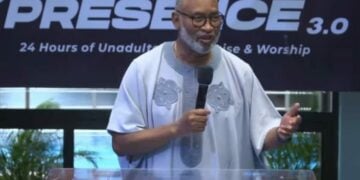Stakeholders in the education sector have called for teacher reform to improve the quality of education delivery in the country.
Speaking at a one-day workshop on Teacher Issues in Conflict and -Protracted Crisis Settings, they emphasised teachers’ roles in improving learning outcomes and the need for evidence-informed policies.
The meeting was organised by International Rescue Committee (IRC) in Abuja to share research conducted by the Education Research in Conflict and Protracted Crisis (ERICC) project team.
The UK government funded the research through the Foreign and Commonwealth Development Office (FCDO) and covers seven countries globally, including South Sudan, Myanmar, Syria, Jordan, Lebanon, Bangladesh and Nigeria.
Regional Research Director, ERICC, Prof. Oladele Akogun, said the target of ERICC was to get research evidence to improve access to education.
He said, “The aim is to provide research evidence that policymakers can use to improve access to education and ensure continuity of education and education quality in countries and areas where conflicts exist.
“We know that there are conflicts almost everywhere—Borno, Adamawa, and Yobe States, for example. The first group of people affected are students and teachers. They are sent away, and some lose their lives, which affects access to education. Some of those affected never come back to school.”
Education Adviser at the British High Commission, Joseph Wales, said the research project aimed to fill a gap in research on improving the quality of education in crisis or conflict zones.
According to him, the research outcome will be mainstreamed into the programmes of the UK government, noting that the goal is to return children who have been out of school in crisis zones by to classrooms.
“The programme’s genesis is that there is a huge research gap around how to effectively deliver education for children affected by conflicts and protracted crisis.
“We need to understand what we can learn from each of these concepts and make sure that we are shaping the research to meet the needs of policymakers and how to improve on those areas.”




